Gallery Network
Spotlight: Artist Yucef Merhi Turns the Digital Physical in Installation Focused on Hacked and Intercepted Government Documents
The Bonnier Gallery is presenting the artist's latest "datagram" at Untitled Art Fair in Miami.
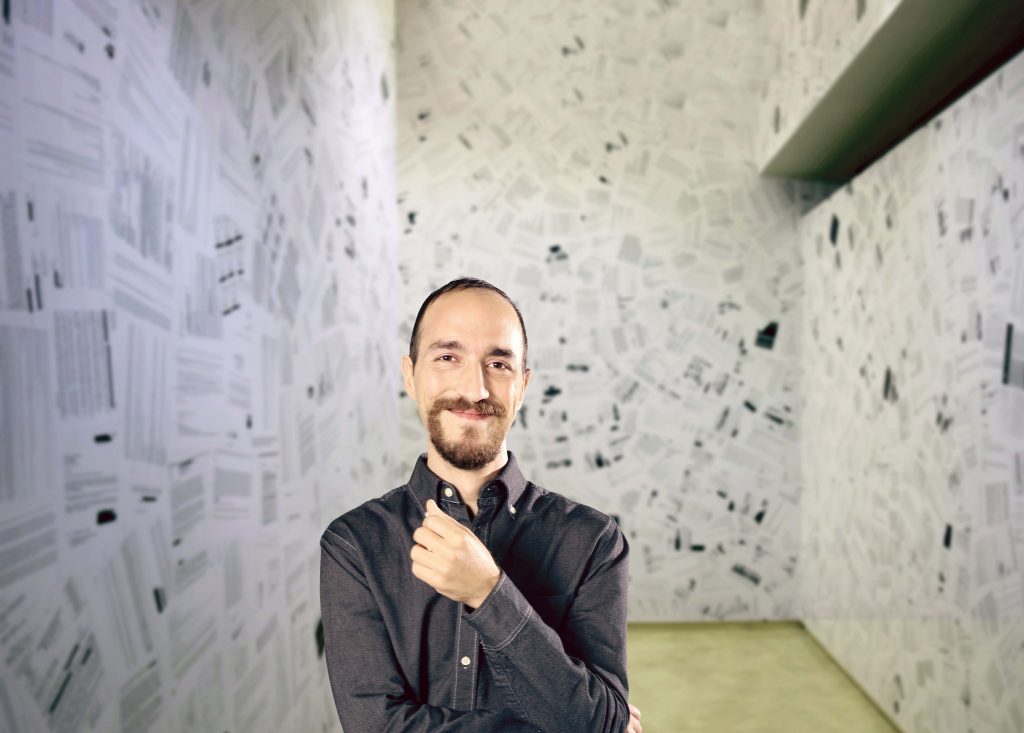
The Bonnier Gallery is presenting the artist's latest "datagram" at Untitled Art Fair in Miami.

Artnet Gallery Network

Every month, hundreds of galleries add newly available works by thousands of artists to the Artnet Gallery Network—and every week, we shine a spotlight on one artist or exhibition you should know. Check out what we have in store, and inquire for more with one simple click.
What You Need to Know: Yucef Merhi is a truly contemporary multihyphenate—an artist, a coder, and an academic researcher. A leader in the realm of digital and new media, his work has examined such technologies as facial recognition, artificial intelligence, virtual reality, and even retro gaming consoles. In 1998, Merhi created his first signature “datagram,” a type of artwork that makes visible the digital movements of hacked information. Merhi’s most impressive datagrams are installations in which visitors can enter spaces plastered with laser-printed sheets of data (often showing redactions). This week, the Bonnier Gallery is presenting Merhi’s most recent datagram, Kingpin (2022), in a solo booth at Untitled Art fair in Miami Beach. Kingpin features printed-out sheets gathered from the U.S. Department of the Treasury’s database, which includes information on companies and personal information of individuals connected with international criminal organizations. The title is drawn from the 1999 Kingpin Act, which authorizes the president of the United States to freeze the assets of major narcotics traffickers, who are commonly referred to as kingpins. Merhi will also have an additional datagram on view, têtê-à-tête (2022), organized by Adriana Meneses as one of the fair’s highlights.
Why We Like It: Merhi’s artistic practice, specifically his datagrams, recalls the work of artists who engage with institutional critique, such as Hans Haacke or Walid Raad. Often, the breadth and scope of the data available is lost on the viewer, but by creating a physically immersive installation, the process of discovering and exploring the data is made a phenomenological experience. It also introduces visitors to Merhi’s signature spatial ordering system, wherein the artist effects a basic data transfer protocol online; once the data is collected, the information is printed and organized in a geometric pattern that results in a dense mass of text that he applies to nearly every surface of the exhibition space. In an era when the release or leak of classified documents and information has become a cornerstone of both national and international affairs, Merhi’s work can be understood as an artistic intervention that invites viewers to explore and learn about previously private information and draw their own conclusions.
According to the Gallery: “We’re very honored to be a part of Untitled’s lineup this year, and even more proud to be presenting Yucef’s latest datagram, Kingpin. As a pioneer in the realm of digital art, Yucef’s bodies of work have explored a number of different mediums always with intention of affecting change towards compassion. The datagrams are no exception. On the outside, the use of hacking as a tool to create art might appear subversive and to an extent it most certainly is. However, Yucef has only ever presented datagrams as instruments of education and a means of bringing awareness to the issues at hand. I’m very grateful that he will have the opportunity to share that on such a large stage next week.” —Grant Bonnier
See inside Yucef Merhi’s installation at the Bonnier Gallery booth below.
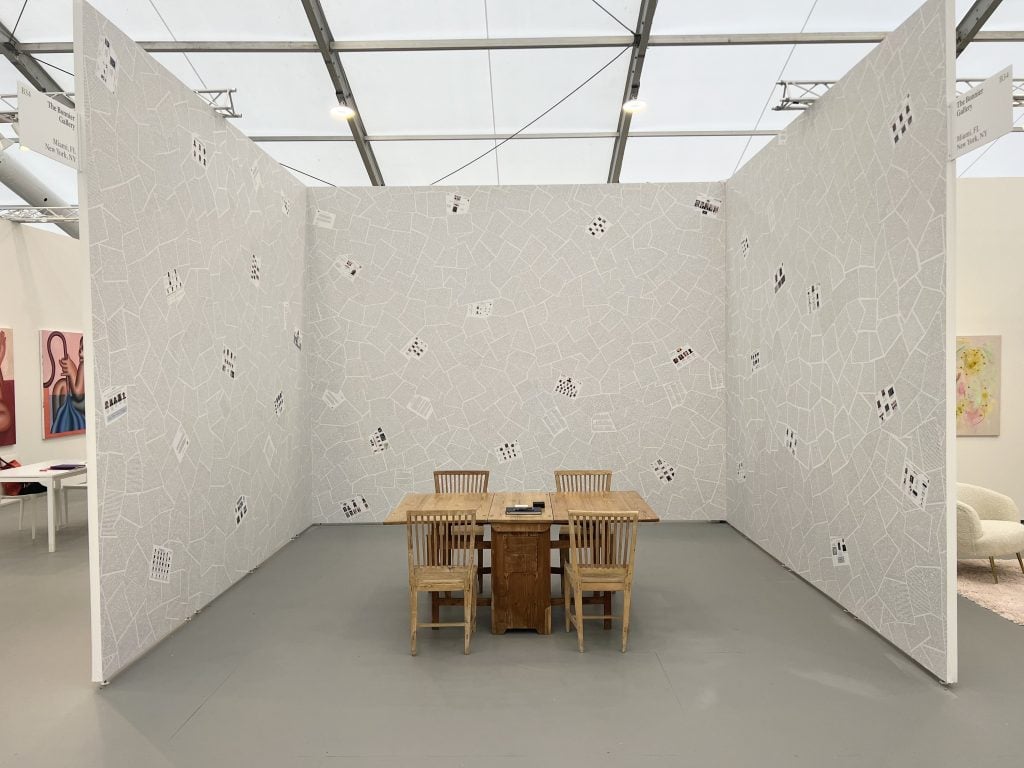
Yucef Merhi, Kingpin (2022). At the Bonnier Gallery, Booth B34, Untitled Art, Miami. Courtesy of the Bonnier Gallery.
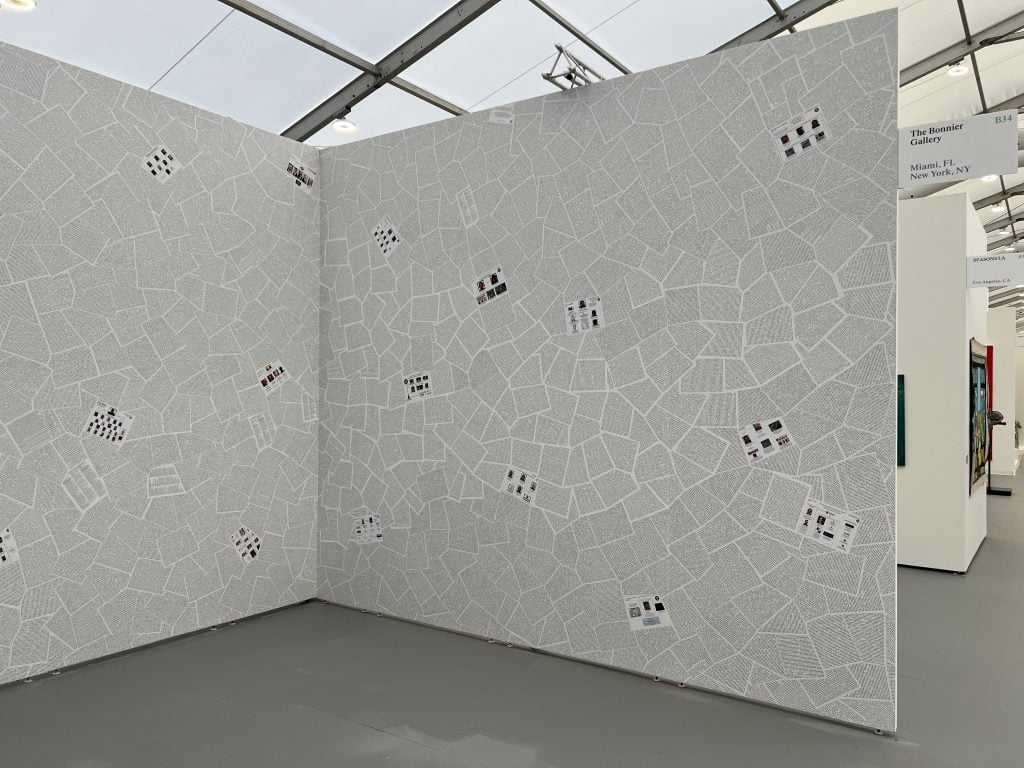
Yucef Merhi, Kingpin (2022). At the Bonnier Gallery, Booth B34, Untitled Art, Miami. Courtesy of the Bonnier Gallery.
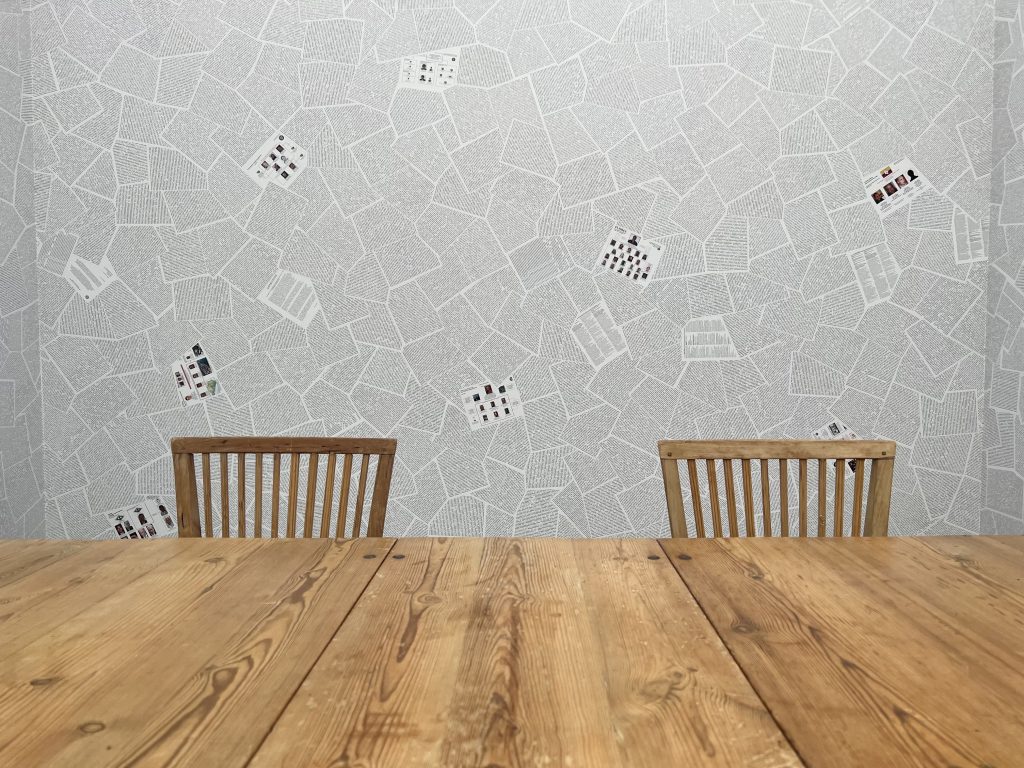
Yucef Merhi, Kingpin (2022). At the Bonnier Gallery, Booth B34, Untitled Art, Miami. Courtesy of the Bonnier Gallery.
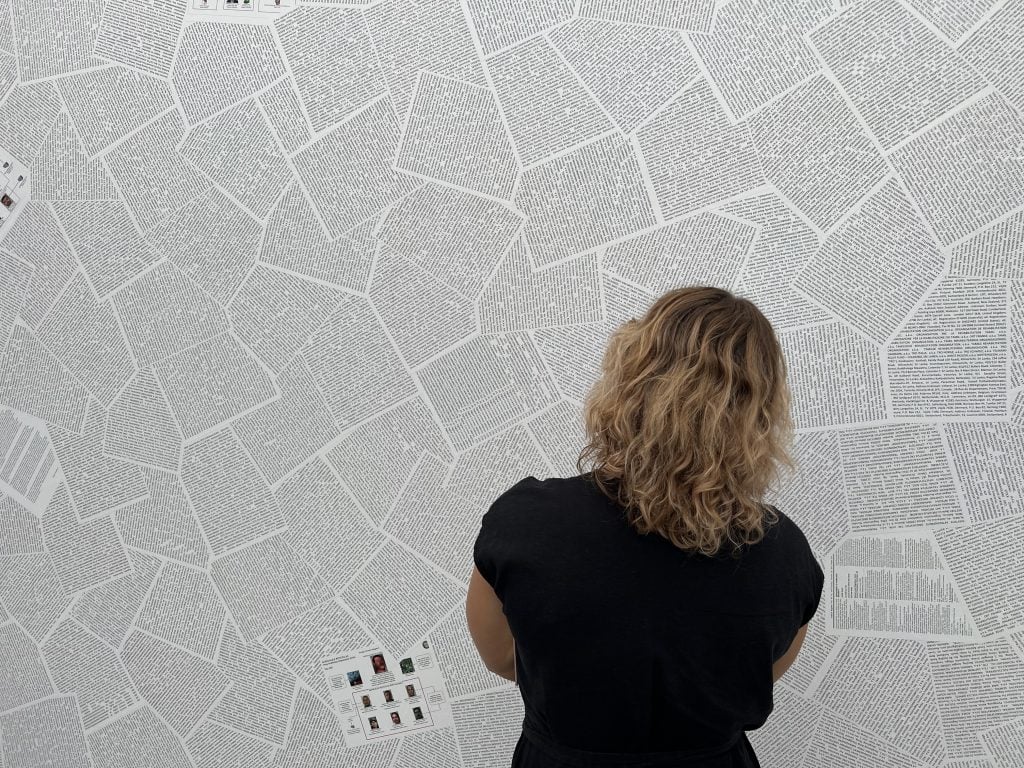
Yucef Merhi, Kingpin (2022). At the Bonnier Gallery, Booth B34, Untitled Art, Miami. Courtesy of the Bonnier Gallery.
Find out more about Yucef Merhi here.